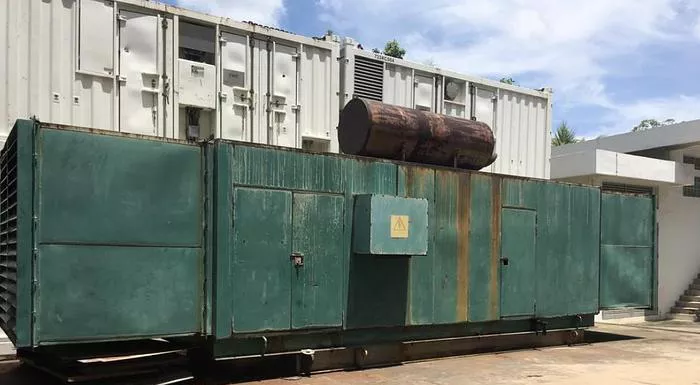Understanding Diesel Generator Noise Levels
Diesel generators are a staple in many residential, commercial, and industrial settings due to their reliability and power. However, one common concern associated with these generators is their noise level. Diesel generators produce noise as a byproduct of their operation, primarily from the engine, cooling system, and exhaust system. The noise can vary significantly based on the generator’s design, size, and usage environment.
Typical Noise Levels of Diesel Generators
The noise produced by diesel generators can vary widely depending on their size and power output. Here’s a general overview:
Small Portable Generators
These are often used for home backup power or small commercial applications. They typically produce noise levels ranging from 60 dB(A) to 80 dB(A). For context, this level of noise is similar to the sound of a normal conversation or background music. These generators are designed to be quieter and more suitable for environments where noise is a concern.
Medium-Sized Generators
Medium-sized diesel generators, commonly used in commercial settings, generate noise levels between 70 dB(A) and 90 dB(A). This is comparable to the noise level of a vacuum cleaner or heavy traffic. They offer a balance between power output and noise, making them suitable for many commercial applications.
Large Industrial Generators
Industrial diesel generators are designed for high power output and often produce noise levels ranging from 85 dB(A) to 120 dB(A). This level of noise is akin to that of a rock concert or a chainsaw. These generators are built to handle large-scale operations and, as a result, are significantly louder.
Factors Affecting Noise Levels
Several factors contribute to the overall noise levels of diesel generators:
Generator Size and Power Output
Larger generators with higher power outputs typically generate more noise. This is due to the larger engines and greater operational demands placed on the generator.
Engine Design
The design and construction of the engine influence the noise it produces. Modern diesel engines often incorporate noise-reducing technologies, such as improved engine mounts and quieter cooling fans, to minimize noise levels.
Exhaust System
The exhaust system of a diesel generator plays a crucial role in its noise level. Generators equipped with advanced mufflers and silencers produce less noise compared to those without such features. The exhaust system helps to muffle the sound of the exhaust gases and reduce overall noise pollution.
Enclosure and Housing
Generators housed in enclosures designed for soundproofing or noise reduction tend to be quieter. These enclosures are built to absorb and dampen sound, making them suitable for environments where noise control is critical.
Operational Conditions
The environment in which a generator operates can affect its noise level. Generators placed in open spaces or near reflective surfaces may produce more noticeable noise compared to those located in enclosed or soundproofed areas.
Noise Regulations and Standards
Noise regulations and standards vary by region and are designed to minimize the impact of noise pollution on the environment and public health. Compliance with these regulations is essential for avoiding legal issues and ensuring that operations remain within acceptable noise limits.
Local Regulations
Many local governments have established noise limits for generators based on their power output and operational environment. It’s important to familiarize yourself with local regulations to ensure that your generator operates within the permissible noise levels.
Manufacturer Specifications
Diesel generator manufacturers provide detailed specifications for their products, including noise levels. These specifications can usually be found in the product datasheets or manuals. Reviewing these details helps ensure that the generator meets the necessary noise standards.
Noise Reduction Measures
If noise is a concern, several strategies can be employed to reduce the impact of diesel generator noise:
Soundproof Enclosures
Installing a soundproof enclosure around the generator is one of the most effective ways to reduce noise levels. These enclosures are designed to absorb and dampen sound, making the generator significantly quieter.
Mufflers and Silencers
Adding high-quality mufflers and silencers to the generator’s exhaust system can help reduce noise. These components are designed to muffle the sound of exhaust gases and lower overall noise emissions.
Vibration Isolation
Properly mounting the generator on vibration isolation pads or mounts can help minimize the transmission of engine vibrations, which contribute to noise. This can make the generator run more quietly.
Regular Maintenance
Regular maintenance of the generator, including checking and replacing worn-out parts, can help lower noise levels. Well-maintained generators operate more efficiently and produce less noise.
Conclusion
In summary, the noise level of diesel generators can vary significantly based on their size, power output, and design. From small portable generators to large industrial units, understanding the noise levels associated with each type is crucial for selecting the right generator for your needs. Noise levels can range from 60 dB(A) to over 120 dB(A), depending on the generator’s specifications and its environment.
The factors influencing diesel generator noise include the generator’s size, engine design, exhaust system, and operational conditions. By considering these factors, you can better understand and manage the noise produced by diesel generators. Additionally, adhering to local noise regulations and implementing noise reduction measures, such as soundproof enclosures and high-quality mufflers, can help mitigate the impact of noise on your environment.
Addressing noise concerns proactively not only ensures compliance with regulations but also enhances the comfort and productivity of the spaces where generators are used. Whether for residential, commercial, or industrial applications, effective noise management strategies can make a significant difference in the overall operation and user experience of diesel generators.
- What Is the Lifespan of a Correctly Maintained Diesel Generator?
- Dry Fork Power Station Secures Federal Funding for Groundbreaking Carbon Capture Pilot
- Unveiling the Power of Generac Diesel Home Generators
- PREMO and Delta Manufacturing Launch Joint Venture to Boost Soft Ferrite Production
- MIG vs. TIG Welding: Which One is Better for Your Project?

